“The role of rhetoric, academic articles, of preachers on the pulpits are all indubitably and absolutely crucial in building the foundation of our community’s faith and Islamic identity, I won’t argue with that. However, even when combined, they fall short in truly expressing the lived narrative of the individuals in the community, and that is where the arts come in.”
Abbas Mohamed is involved in community projects focused on food, poetry, and the arts with organizations that include GAMA, Compassion Crew, and Halalfest. A selection of his poetry will appear in the upcoming anthology A KALEIDOSCOPE OF STORIES – Muslim Voices in Contemporary Poetry, coming soon from Lote Tree Press.
What brought you to poetry?
Ever since I was younger, I have always been a bookworm. When I was 6 years old, I placed in the top 5 in the summer reading competition at the El Segundo library (#humblebrag)! Since then, I’ve read with such varied interests although when I was hit with textbooks as I entered college, my pleasure reading waned. However, one thing that remained was my love for poetry. A poem is small enough to be consumed in a few moments yet big enough to stay with you forever. I have memorized and remembered quotes from poems far more than any other mode of literary consumption. Poems convey so much heart in such few lines, that it’s hard to find anything else that packs that kind of punch. I have so many books of poetry now and my favorite thing about them is that you can open a book to a random page and find yourself reflected in the words in front of you. Learn to read poetry and you’ll learn to read yourself, and eventually the universe, and the Divine. “IQRA” “READ” (Q 96:1)
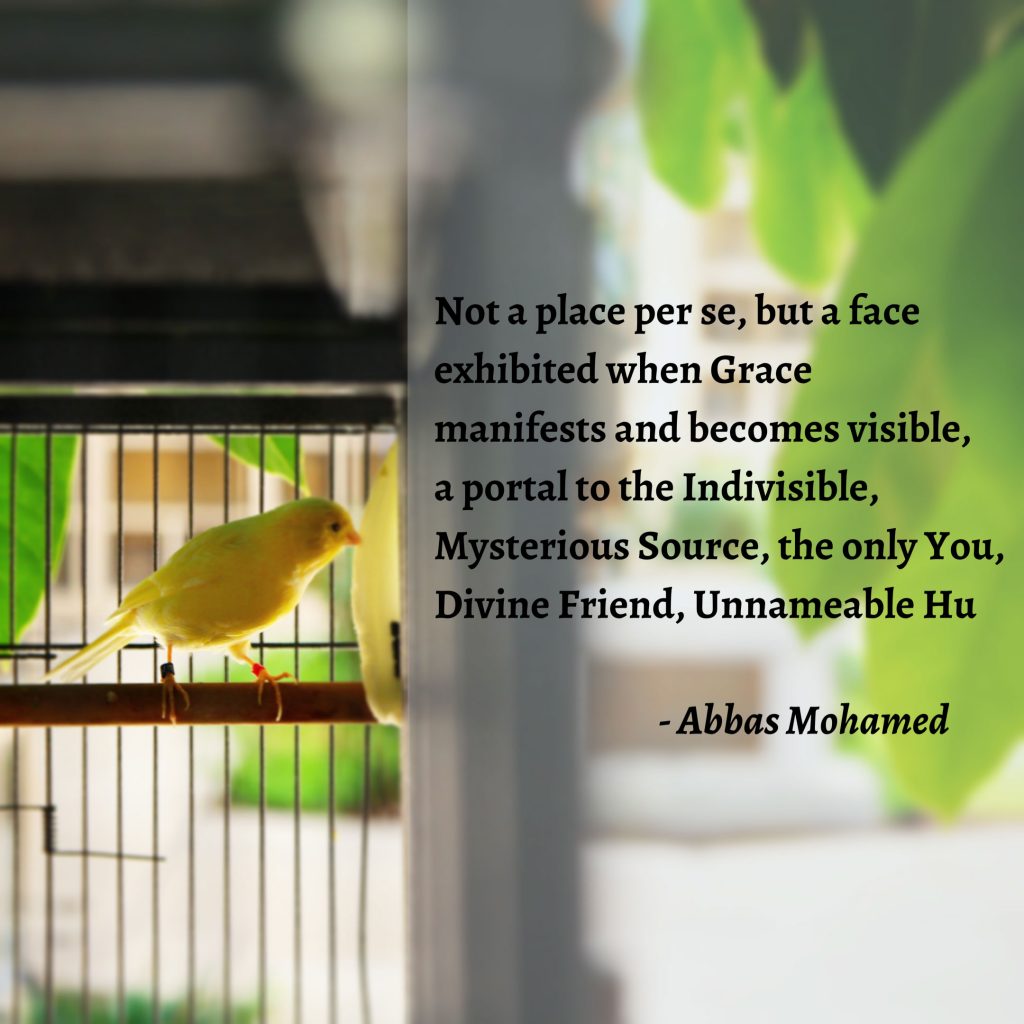
What role does poetry play in your life?
The written word is like a direct window into the mind. Sometimes I go through my old writings, and realize that each piece is a snapshot of my consciousness in the moment in which I wrote it. Some of my poems end up being pieces of poetry and prose from different times, all stitched up like quoted quilt work, and they read like a metamorphosing caterpillar laid out across the leaves of time. Imagine if we saw poems as portals into the consciousness of an entire other being, each work a window, doors like diary entries, imagine if we saw our libraries as collections of conscious concentrations of closeted confusions and conclusions, you could then literarily step into the songs of Saint Symeon the Great Theologian, a 10th Century Greek Christian monk, whose hymns praise Him, holy is Hu, Waḥdahu Waḥdahu, imagine then we could bounce around the big brains of Bayazid Bastami, a 9th century Persian Sufi who blasphemically stated سبحاني, perhaps we could begin to understand his experience of Tawḥīd in that moment, Waḥdahu Waḥdahu, or even peruse and parse through parcels of poetry by Amir Sulaiman and become hopeful, knowing that gnosis is not locked in the past, or in Persian, or in faraway lands, and perhaps could be accessible even here, even in English, even now, because the only portal that truly exists when all is said and done, is the one to THE NOW, the First, the Last, the Forever, the Ancient, the Present, Waḥdahu Waḥdahu Waḥdahu laaa Shareeka laHuuuuu
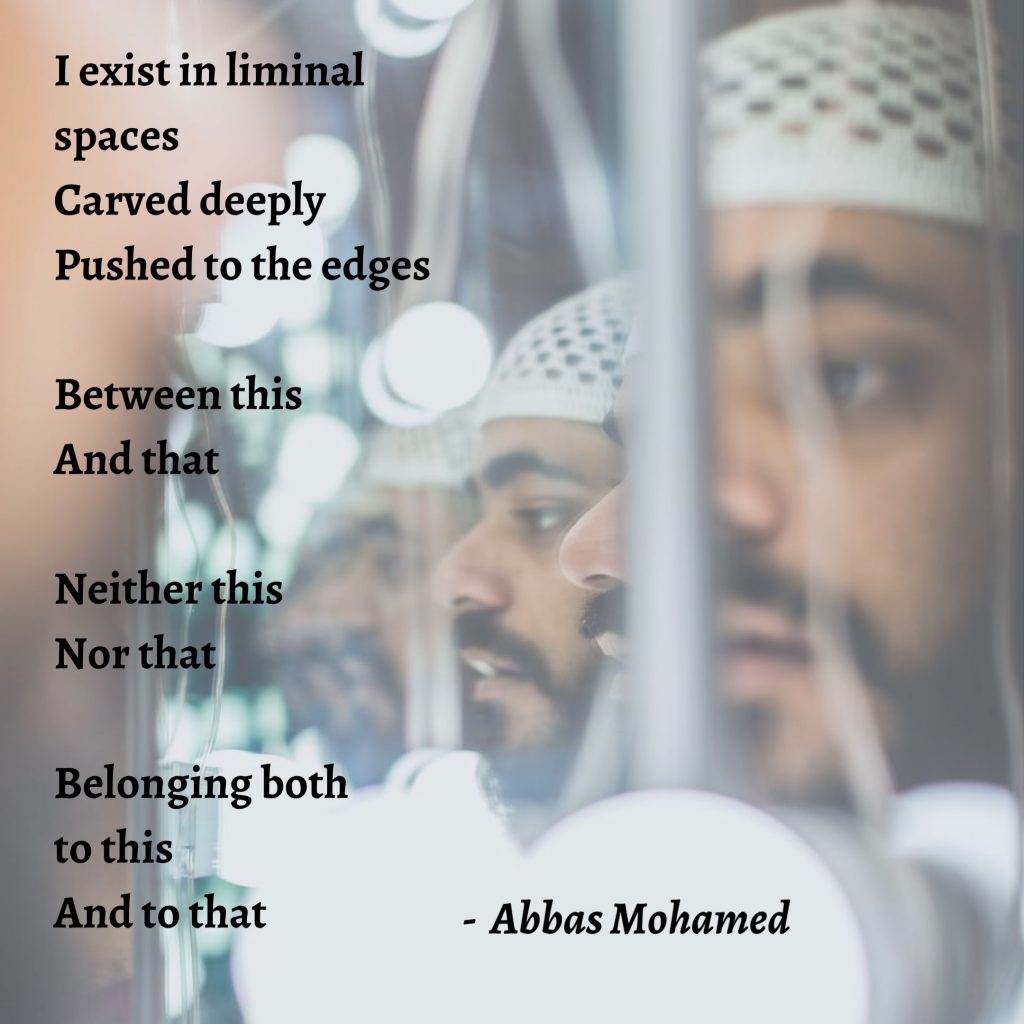
What role does poetry play in expressing your identity and faith?
Poetry plays an intensely intimate role in sharing identity and faith. More importantly though, the poetry of everyday actions speaks volumes more in that regard. A poet is not simply someone who strings words together in a pretty manner, rather poetry is a way of relating to the universe. A poet does not simply look at a flower, for example, and see a flower, but rather sees the representations, the metaphors, the emotions, aesthetics, and essence all at once. This is what allows the poet to discuss at length the yearning desire for a flower that justifies the pain caused by its thorns, or perhaps pontificate on how Love is about appreciation and not possession, therefore flowers must never be picked. A poet perceives reality by what is beyond reality, by perceiving oneself in reality, transcending, and thus perceiving Reality. Once this polishing occurs, it is impossible to relate to each and every being without perceiving the Divine, and thus a poet can be identified with their honorable and gracious character as well. Such is the role of poetry in a poet’s life, and such is the lofty goal that we must work towards in our polishing:
“…once you open the Eyes of your Heart
once you polish the Mirror of your Heart
once you see through the Lens of your Heart
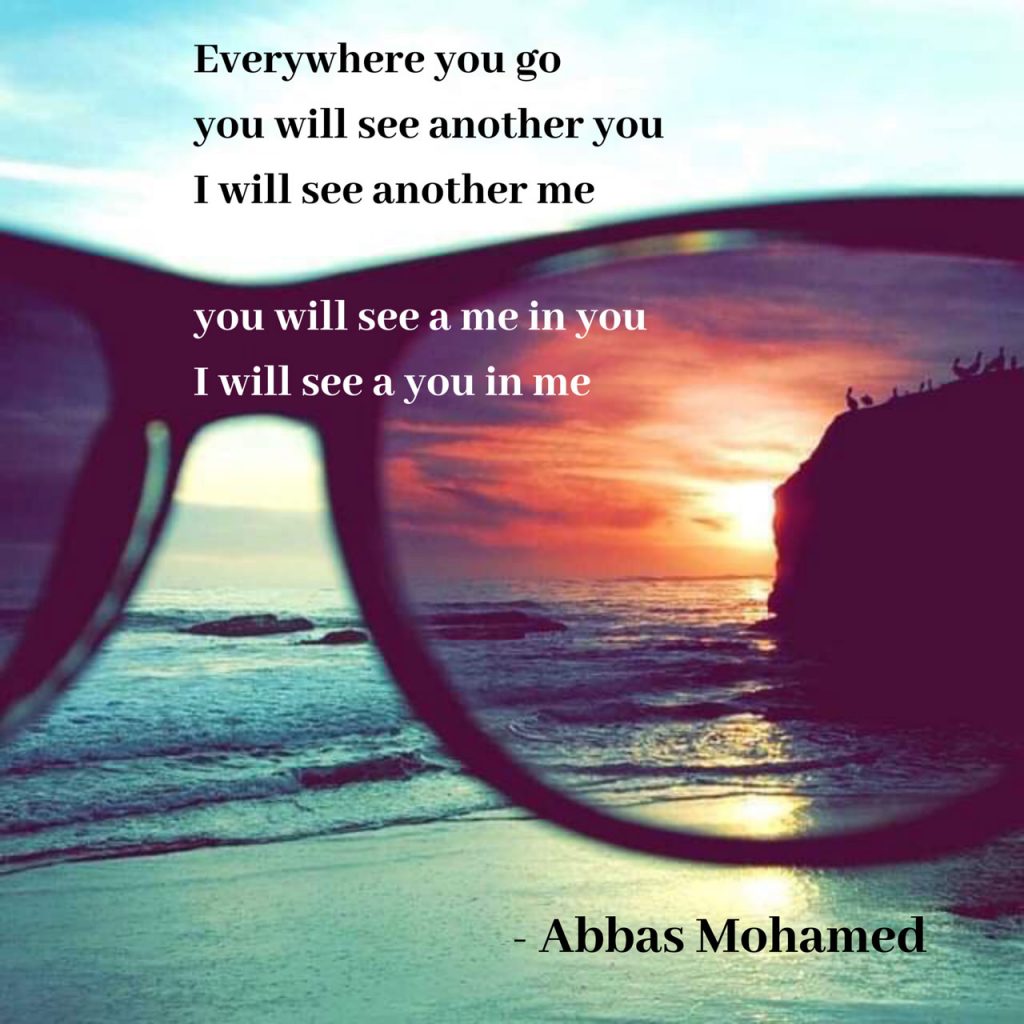
Why is poetry important?
The role of rhetoric, academic articles, of preachers on the pulpits are all indubitably and absolutely crucial in building the foundation of our community’s faith and Islamic identity, I won’t argue with that. However, even when combined, they fall short in truly expressing the lived narrative of the individuals in the community, and that is where the arts come in. What is my DAILY existence like? Who am I? What does it mean to be a part of this community anyways? Does this define me? Does this define anyone? A poet is at once a mirror of their own community, their self, and if polished, the Divine. A poet is not a producer of content, but rather a service provider, and that service is healing, even if it’s as simple as a little brown boy seeing a bigger brown boy on a stage, or in a book, or on TV and saying yes, that is me too, he speaks for me too. There is power in poetry, and power with the poet. It would serve the poet best to leverage that power to empower the powerless, to give voice to the voiceless, to uplift the downtrodden, and lend their pen and their voice to the movements for peace, justice, joy, beauty, and self-representation present today.
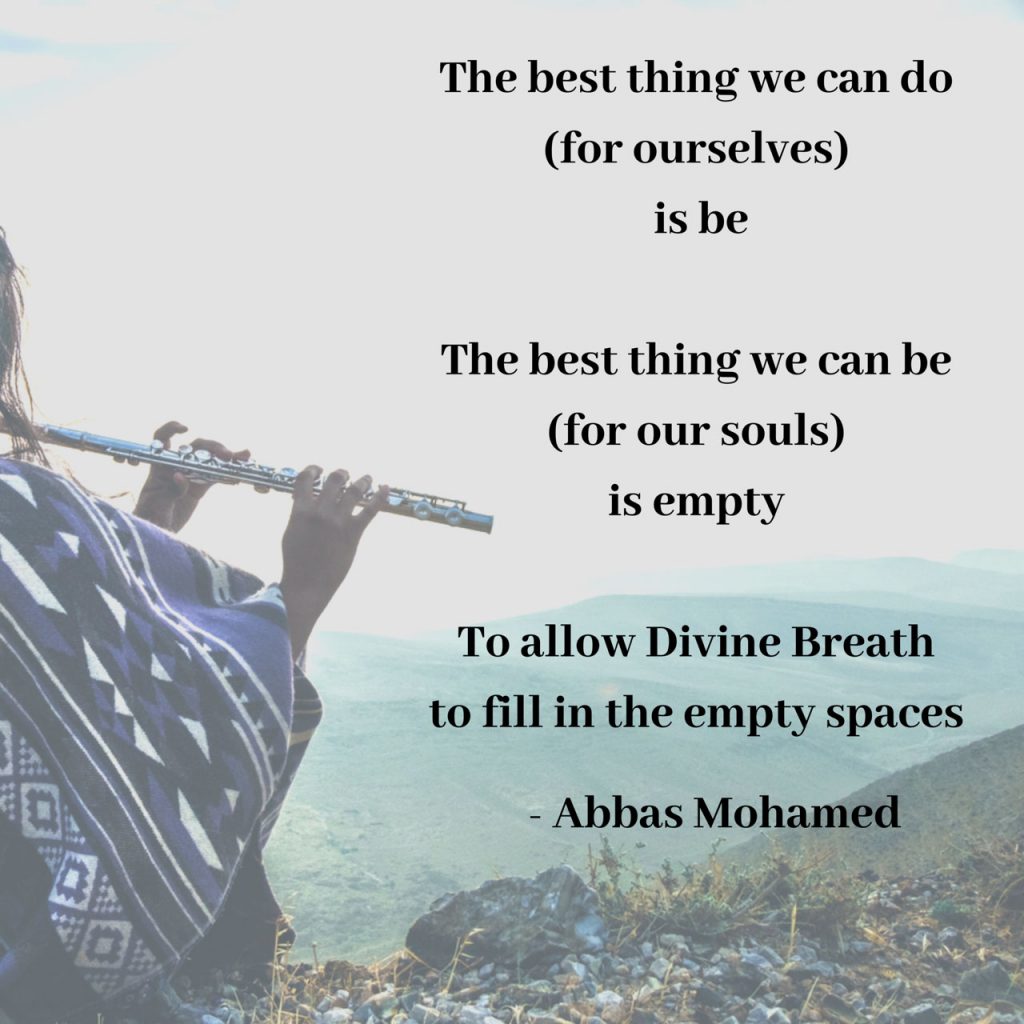
Do you have any advice for aspiring poets?
Get out of your own way. Don’t TRY to write…just write, there is time for editing later.
Poetry is, and can be so much more than just words on a page. In a poem, Amir Sulaiman describes the act of creation as the Divine ‘writing’ a love poem for His beloved, Rasulullaah (S), that indeed this poem has one verse, a universe, and that we are all lines of light, Muhammadan metaphors within this Divine Poem of Love from the Lover to His beloved. In 16th century Jewish Mysticism (Lurian Kabbalah), the belief emerged that “when God created the world, God formed vessels to hold the Divine Light. As the light began to fill the vessels, they were unable to contain divinity and shattered. Sparks of Divine light were trapped in the shards of these vessels; they scattered throughout the cosmos and formed our world. The task of humanity is to reunite the scattered sparks of Light, to repair the broken world, and thus participate in finishing God’s work.” (Myke Johnson – Finding Our Way Home). I feel this is what could be responsible for the tingling feeling of familiarity felt when finding a familiar’ feeling fellow, or friend who feels like family. In Hinduism, the greeting of Namaste recognizes the Divine Spark within the receiver of that greeting, and in Islam we believe that in our metaphysical core exists the Nafas Ar-Rahman (The Breath of the All Merciful). When He breathes, He Speaks, and we are His Words. How would you live your life differently if you realized that the Divine could manifest through your own heart and your own hands? How will you manifest Mercy, Generosity, and Compassion in your life today?
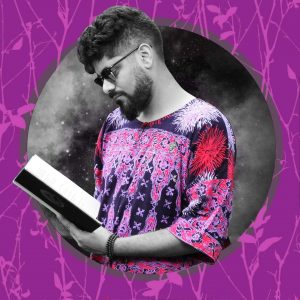
Abbas Mohamed has a huge appetite for life and what is beyond. He is involved in community projects focused on food, poetry, and the arts with organizations that include GAMA, Compassion Crew, and Halalfest. Abbas has been writing poetry since 2008 and humbly presents his stanzas as an offering of peace and blessings. Abbas’ poetry appeared in the Rumi Center for Spirituality and the Arts poetry anthology Opening the Eye of the Heart. A selection of his poetry will appear in the upcoming anthology A KALEIDOSCOPE OF STORIES – Muslim Voices in Contemporary Poetry, coming soon from Lote Tree Press.
You can find him on Instagram @babyshamss.
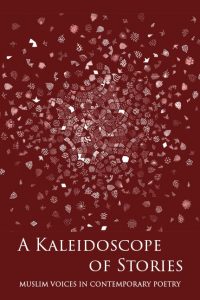
A KALEIDOSCOPE OF STORIES – Muslim Voices in Contemporary Poetry, coming soon from Lote Tree Press, is an anthology bringing together the myriad voices of over fifty Muslim poets from diverse backgrounds to powerfully articulate what it means to be Muslim in the modern world. It provides a platform for Muslim voices to be heard, speaking about their experiences in their own words, and offers an antidote to the stereotyped, one-dimensional portrayal of Muslims we see so often in the media.
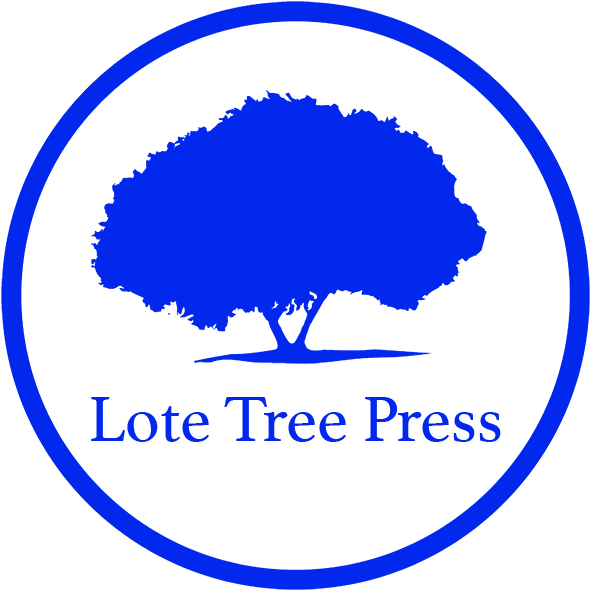
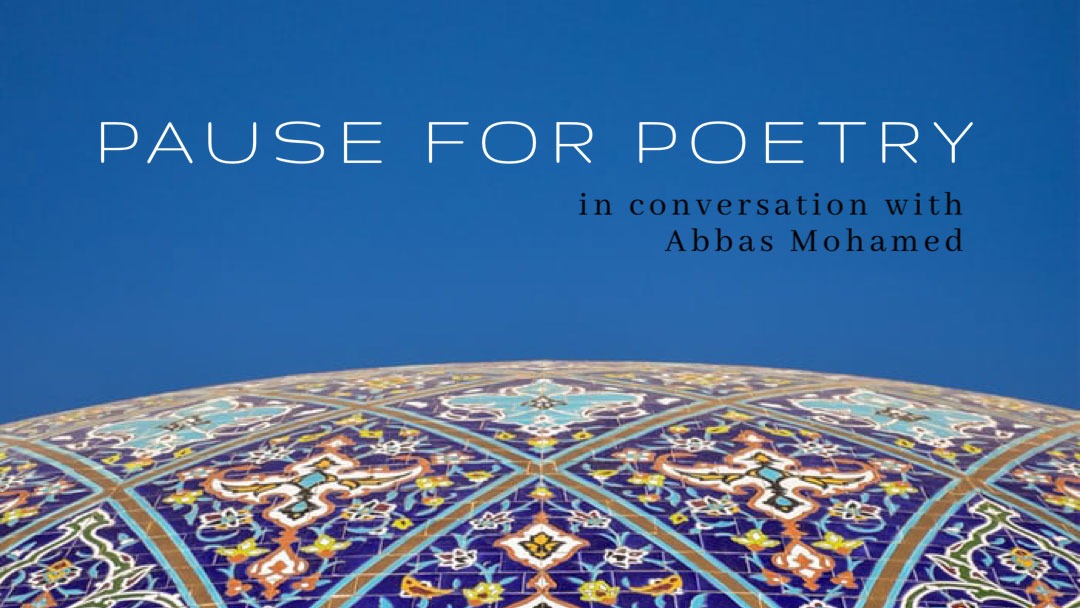
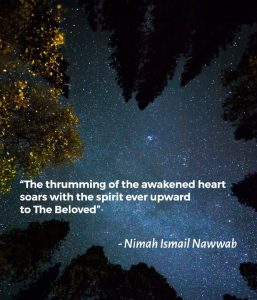
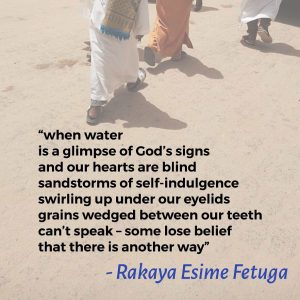
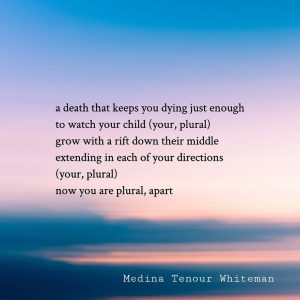
Subhan’Allah. This window of open, fresh air into deepest blue.
Thank you.